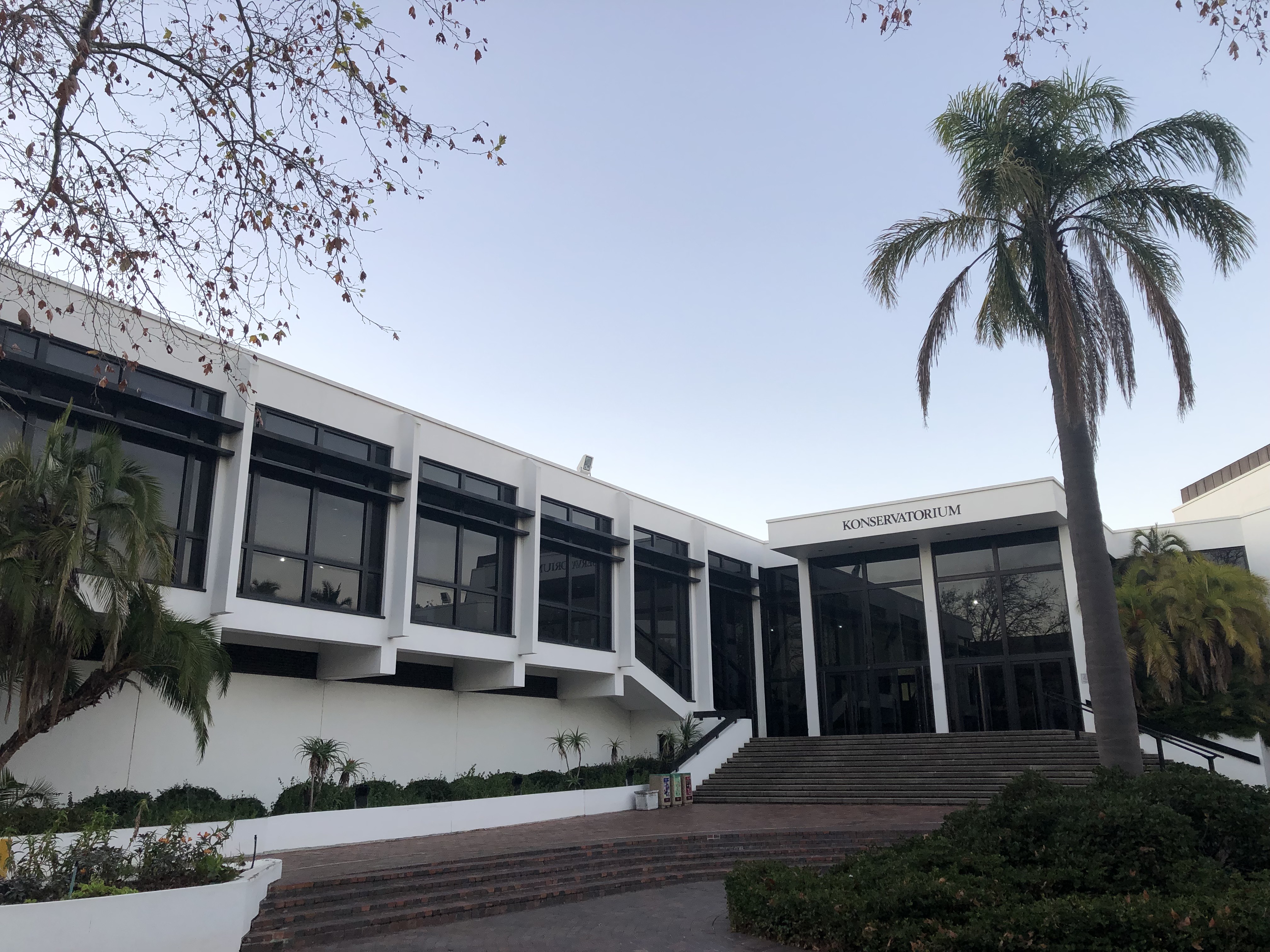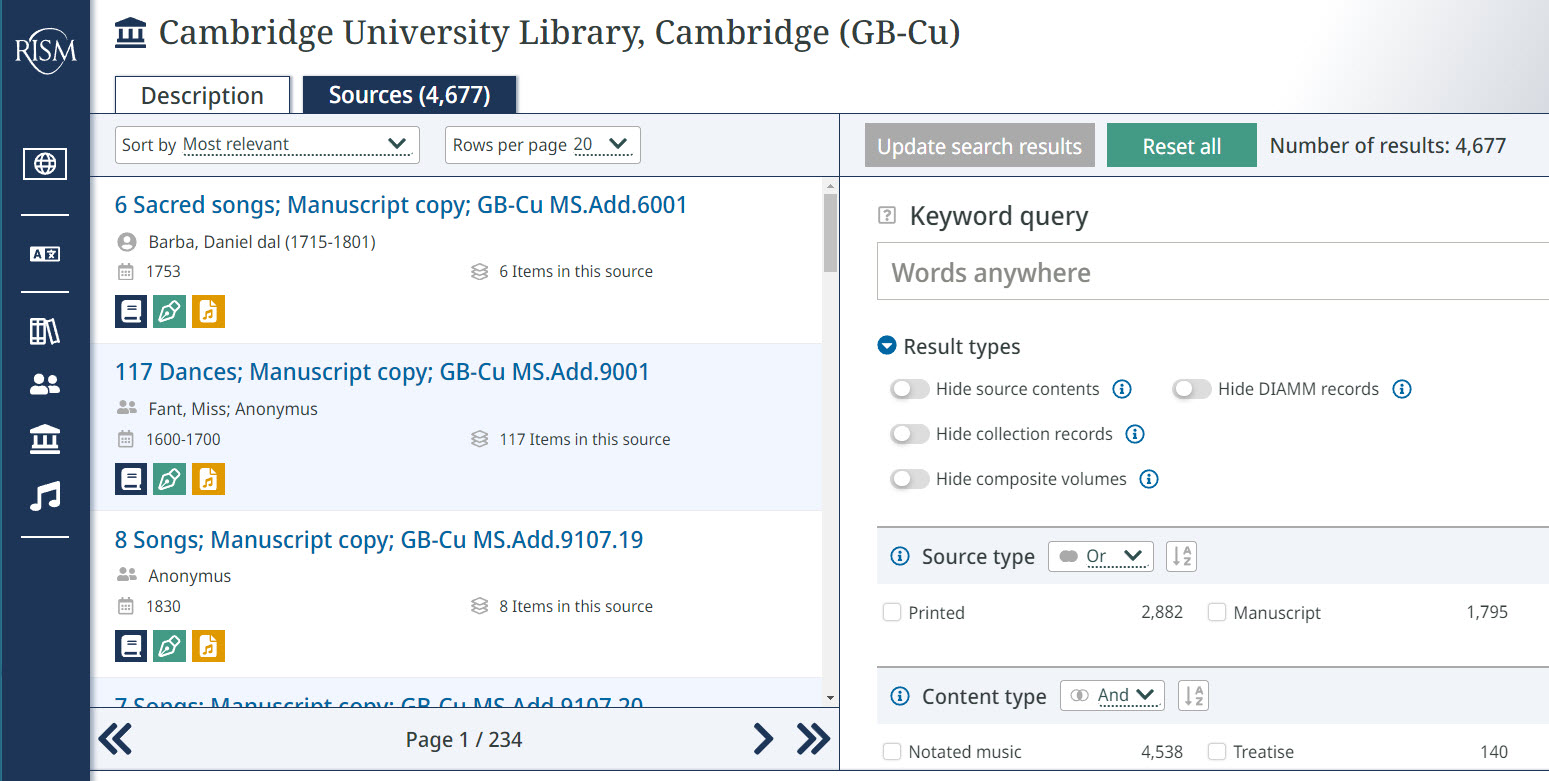The following Stellenbosch Congress Diary original appeared on the RISM blog and is reposted here with kind permission:
RISM in Africa
 The 2024 IAML Congress in Stellenbosch, South Africa marked several firsts: the first time a IAML Congress took place on the African continent, the first time so many of our colleagues from Africa could participate in a IAML event, and for many IAML members it was our first time in Africa.
The 2024 IAML Congress in Stellenbosch, South Africa marked several firsts: the first time a IAML Congress took place on the African continent, the first time so many of our colleagues from Africa could participate in a IAML event, and for many IAML members it was our first time in Africa.
In many respects, the congress week was similar to previous IAML congresses in that we had the opportunity to meet with our RISM contributors, hold a RISM cataloging workshop, and host a session dedicated to RISM. What made it stand out was the opportunity to come into conversation with colleagues from South Africa and Africa for the first time and to learn about their collections.
RISM aims to build a database of musical sources from all around the world, with a focus on historical printed music and music manuscripts. We have partnerships with people worldwide and the RISM database can be searched on two platforms, the RISM Catalog (https://opac.rism.info) and RISM Online (https://rism.online). However, we recognize that our coverage is inevitably uneven. Even though our database includes sources from 53 countries, no country from Africa is represented in our database yet.
We hope this changes soon. As part of our work to document musical sources worldwide, RISM assigns an abbreviation, called a siglum, to institutions that hold musical sources or material related to the research of music. Prior to the congress, the Editorial Center expanded its coverage of RISM sigla for South African institutions by adding the institutions and private collections listed in Santie de Jongh’s Directory of South African Music Collections. As a result, we now have 41 sigla from South Africa, covering 16 cities, with each entry linking to De Jongh’s directory for detailed descriptions of historic music holdings and other archival materials.
In the RISM Catalog, you can find all institutions from South Africa here.
In RISM Online, you can find all institutions from South Africa here.
When you click on an institution, you will find a detailed description. For example, this is the record for the Universiteit van Stellenbosch, Musiek Biblioteek, Stellenbosch (RISM library siglum: ZA-STusmb):

As soon as the first musical source from the institution is added to the RISM database, a new tab appears in the top left corner called Sources. This is what it looks like for Cambridge University Library:

An interface is available which allows you to search and browse the collection. Access to RISM’s cataloging program is provided to each contributor, and the Editorial Center offers training at no cost. There is no need for an institution to develop a separate database or search interface, since it is all integrated in RISM and is offered for free to all partners.
Since RISM essentially focuses on manuscripts and prints, musical traditions where the transmission is not primarily, or indeed not at all, based on paper documents are essentially beyond our scope. With that in mind, it is hardly surprising that RISM’s current database by and large includes repertories belonging to the European art music tradition – even in cases where the sources themselves are not located in Europe. And in this context we are facing a challenge of another kind, namely that the sources potentially relevant for RISM cataloging that are located outside of Europe as a rule form part of a colonial heritage the study of which – quite understandably – may not be the foremost preference of local scholars and research projects. We are fully aware that the attention given to such sources is inherently more controversial in a postcolonial context than elsewhere, but we at RISM would nonetheless be very happy to get in touch with any of you working at institutions holding such musical sources, and openly discuss any concerns you may have.
Inspired by Wilhelm Delport’s paper during the RISM session in Stellenbosch (“How tracking RISM’s footprint across (South) Africa led to the discovery of ancient bullroarers, San rock paintings and an elephant in the music room”), we are eager to widen RISM’s “footprint” and talk to librarians, scholars, and others who know about written African musical sources and would like to see those sources in RISM.
In Stellenbosch we made several new contacts from South Africa and Africa and have many promising leads, all of which we hope will result in the first descriptions for African musical sources in RISM very soon. If you are from Africa and you heard about RISM at the IAML Congress or would like more information about what we do, please get in touch with us contact@rism.info.
- Facebook Like
- Auf Facebook teilen
- Zum Verfassen von Kommentaren bitte Anmelden.

